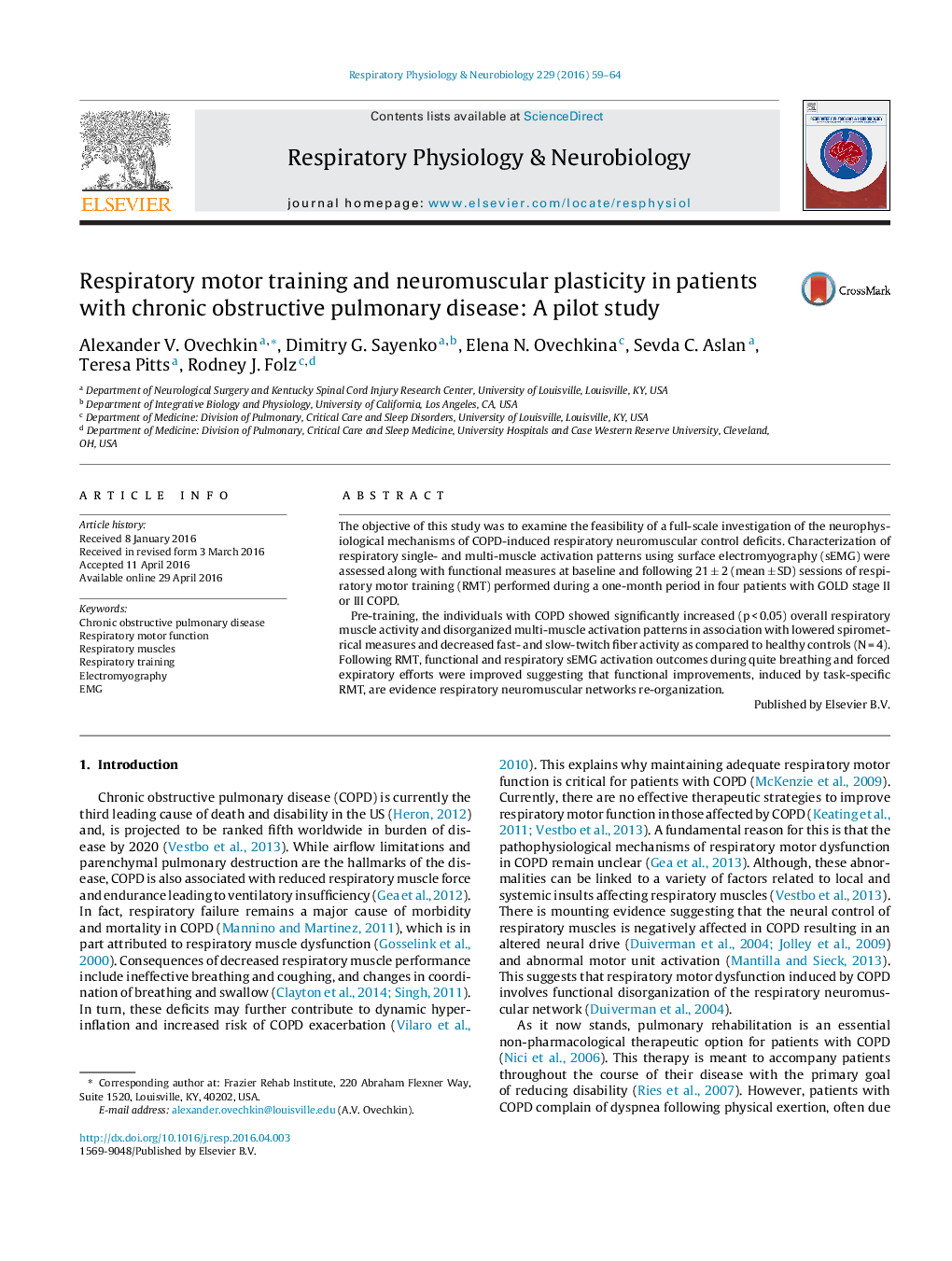| Article ID | Journal | Published Year | Pages | File Type |
|---|---|---|---|---|
| 2846680 | Respiratory Physiology & Neurobiology | 2016 | 6 Pages |
•We examined effects of respiratory motor training (RMT) on respiratory single and multi-muscle activation properties in individuals with chronic obstructive pulmonary.•These effects were evaluated using spirometry and electromyography.•Respiratory function and respiratory muscle activation patterns were improved.•This study demonstrate that functional improvements induced by the RMT are associated with adaptive re-organization of respiratory neuromuscular networks affected in COPD.
The objective of this study was to examine the feasibility of a full-scale investigation of the neurophysiological mechanisms of COPD-induced respiratory neuromuscular control deficits. Characterization of respiratory single- and multi-muscle activation patterns using surface electromyography (sEMG) were assessed along with functional measures at baseline and following 21 ± 2 (mean ± SD) sessions of respiratory motor training (RMT) performed during a one-month period in four patients with GOLD stage II or III COPD.Pre-training, the individuals with COPD showed significantly increased (p < 0.05) overall respiratory muscle activity and disorganized multi-muscle activation patterns in association with lowered spirometrical measures and decreased fast- and slow-twitch fiber activity as compared to healthy controls (N = 4). Following RMT, functional and respiratory sEMG activation outcomes during quite breathing and forced expiratory efforts were improved suggesting that functional improvements, induced by task-specific RMT, are evidence respiratory neuromuscular networks re-organization.
